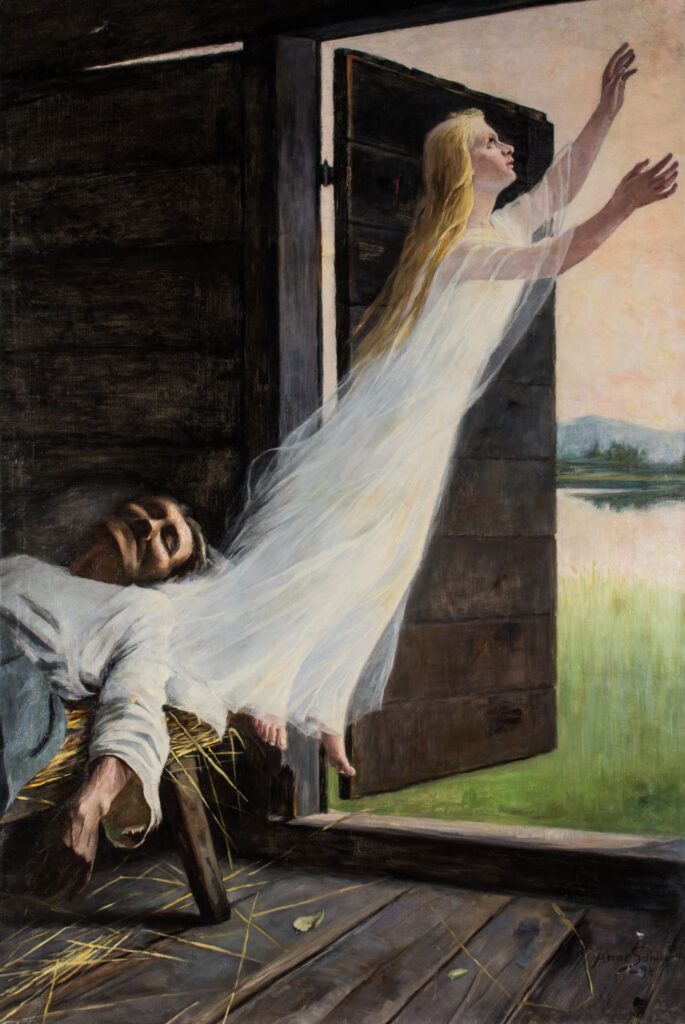January 7, 2025
Jason Bonnicksen

The Creed ends with so much hope and a vision of what awaits when we’re in Christ. Of all the statements we’ve looked at thusly, this by far (at least for me), might be one of the most difficult to conceive. I mean, I can kinda picture it; but I don’t know if anybody on this side of heaven can truly imagine what the resurrection of the dead will look like, and how glorious the age to come will truly be. But that’s what we’re considering today—what we’re “looking” at if you will.
The original language of the Creed was Greek; and as we do with the Scriptures, it can be helpful to look at the original text as written to understand what the author’s intended to convey. In this case, the depth and breadth of meaning in our English language doesn’t do justice to the original language. The last sentence of the Nicene Creed looks like this: “προσδοκοῦμεν ἀνάστασιν νεκρῶν, καὶ ζωὴν τοῦ μέλλοντος αἰῶνος. Ἀμήν.”
The word we need to consider is προσδοκοῦμεν. In English, we read that word as “We look for”, and that’s not incorrect. It’s quite accurate, actually. But there’s more to this notion of a simple “looking for.” A greater breadth of meaning encompasses the ideas of expectation, hoping, and awaiting (the resurrection of the dead). Let’s consider some passages that used this word.
The hope we have that God will raise us from the dead someday is something I’ve been thinking about a lot lately, especially in the wake of my mother-in-law’s passing.
As we age, many of us look to the peace of being in heaven when we shed our earthly bodies. That’s a very real thing—a hope, an anticipation, and an expectation, but in a very non-corporeal sense. Our ideas of a “disembodied existence” in heaven aren’t truly biblical, but are more-so the theological premises of the ancient Greeks, and later the Gnostics, who desired to shed the body completely and be purely spirit.
What we’re talking about today is not just the prospect of being with Christ in Paradise when we die (although it is a glorious thing), but bodily resurrection. Heaven is a very real thing, but we who are alive cannot yet see it, touch it, smell it, etc.
The Apostle Paul inferred that to be absent from the body is to be at home with the Lord. (2 Corinthians 5:1–8). Beyond our hopes of transcending this earth when we pass and living with Christ, the angels and saints in Paradise, someday Heaven will come to earth, and our souls will again be united with new bodies—not bodies like we have now, but ones that are similar to Jesus Christ’s resurrected body. That’s what we are truly considering today when we read the Nicene Creed. Consider what the Apostle wrote:

Now with that in the forefront of our minds, let’s go back to the Gospels to see what resurrected bodies may be like. I know we’ve touched on them before, but let’s read and discuss the stories of Mary Magdalene encountering the risen Jesus, as well as Cleopas and his friend also.
Read John 20:11–18 and Luke 24:13–31 (and jot down a few notes about what you’re noticing).
So, a question that keeps swirling around in my mind, and maybe it has with yours also, is this…
When our mortal bodies die, will we be transformed as Christ was “now” and have new bodies in Paradise/Heaven (and be like the angels now – see Matthew 22:30), or do we have to wait until the final resurrection at the last trumpet? Jot down a few of your thoughts.
All this is to say, one day, someday, at the last trumpet, in the twinkling of an eye, you and I shall be changed and given new bodies to house our souls. As Paul said, we who believe in Christ will put on the imperishable and be immortal (1 Corinthians 15:50–57). Being transformed, we will like live with God forever and ever in the life and the age to come.
This is a different kind of life than we know now. It’s life without death, without pain or sorrow or tears, but life, nevertheless? St. John wrote this:
Will we need to eat, sleep, drink? That we can’t say, but even Christ ate with his disciples after he’d arisen. Whether his glorified body needed nourishment we just don’t know, but we will have physical life in some way. The word “life” used by the Nicene Father’s indicates as much, it’s a both/and: physical life and transcendent life. The scriptures say that our new bodies will be like that of the angels (Matthew 22:30).
Let’s read together the Holy Bible’s final chapter about what that life will be like, jotting down a few notes, and conclude our time in the Nicene Creed with one last discussion.
Read and ponder Revelation 22:1–5 to wrap up your devotion for the week.
© 2024 Jason Bonnicksen Ministries. All rights reserved